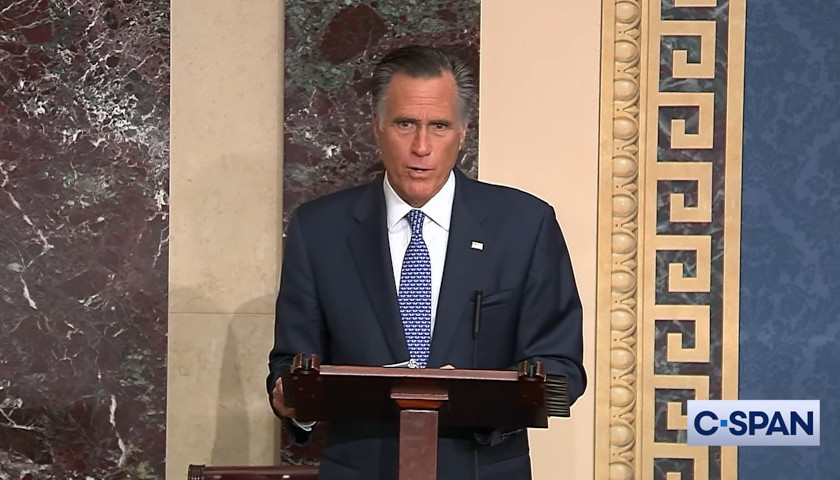by Ken Bredemeier, Chris Hannas
WASHINGTON – U.S. Sen. Mitt Romney, the 2012 Republican presidential candidate, said Wednesday he voted to convict President Donald Trump of abusing his presidential power, even as the full Senate exonerated Trump on two articles of impeachment.
In a dramatic speech ahead of the Senate’s vote, Romney said “what the president did was wrong, egregiously wrong” in asking Ukraine to launch an investigation of one of Trump’s chief 2020 Democratic challengers, former Vice President Joe Biden, and his son Hunter Biden’s work for a Ukrainian natural gas company.
Romney, defeated by former President Barack Obama for the presidency before winning a Senate seat two years ago from the western state of Utah, said that “if these names were not the Bidens, the president would not have done what he did.”
He called Trump’s abuse of presidential power “a flagrant assault … on our fundamental values.”
But Romney said he would not vote to convict Trump on the second article of impeachment, that he obstructed congressional review of his Ukraine-related actions.
Romney became the first senator to break ranks from political party regimen in the Trump impeachment trial, with so far no other Republicans declaring they would vote to convict the Republican Trump to remove him from office or Democrats announcing they would vote to acquit Trump.
With a two-thirds vote required for conviction of the country’s 45th president and his removal from office — and Republicans holding a 53-47 majority in the Senate — Trump was all but assured of being acquitted.
Romney acknowledged he would wind up in the minority in voting for Trump’s conviction and would face fierce attacks from Trump’s allies, but said his conscience would not allow him to clear Trump of wrong-doing.
Trump’s two-week trial came to an end late Wednesday afternoon as the Senate voted on each of the articles of impeachment approved late last year by the Democratic-controlled House of Representatives.
Trump’s impeachment trial was the third against a president in the country’s nearly 2 1/2-century history with the same likely result, acquittal after a Senate trial. Andrew Johnson in the mid-19th century and Bill Clinton two decades ago were both exonerated and remained in office to finish their terms.
Trump, meanwhile, would be the first acquitted president to then face a re-election contest to remain in office.
Political analysts had considered Sen. Doug Jones of Alabama, a Democrat facing a tough re-election contest this year in a Republican-dominant Southern state, as a possible acquittal vote favoring Trump. But in a Senate speech hours ahead of the final votes in the trial, Jones said he would vote to convict on both impeachment articles.
Trump’s actions, Jones said, “show he thinks he’s above the law.”
The president made no mention of impeachment during his State of the Union address Tuesday night. But he has derided the process throughout as a “witch hunt” and said he did nothing wrong.
The articles of impeachment charged Trump with abusing his power by asking Ukrainian President Volodymyr to launch the Biden investigations even as he withheld $391 million in military aid to Ukraine that Kyiv wanted to help fight pro-Russian separatists.
Trump released the assistance in September without Zelenskiy announcing any Biden investigations, which Republicans said was proof Trump had not engaged in a quid pro quo deal with Ukraine, the military aid in exchange for the politically tinged probes.
The second impeachment article accused Trump of obstructing congressional investigations into his Ukraine-related actions by directing key aides of his to not testify before impeachment investigators or provide documents.
Senate Democratic leader Chuck Schumer said Tuesday, “The administration, its top people and Senate Republicans are all hiding the truth. The charges are extremely serious. To interfere in an election, to blackmail a foreign country to interfere in our elections, gets at the very core of what our democracy is about.”
Senate Majority Leader Mitch McConnell, a Trump supporter who helped plan an abbreviated trial that didn’t allow for new witness testimony or evidence, said the impeachment charges against Trump do not “even approach a case for the first presidential removal in American history.”
– – –
Photo “Mitt Romney” by CSPAN.





